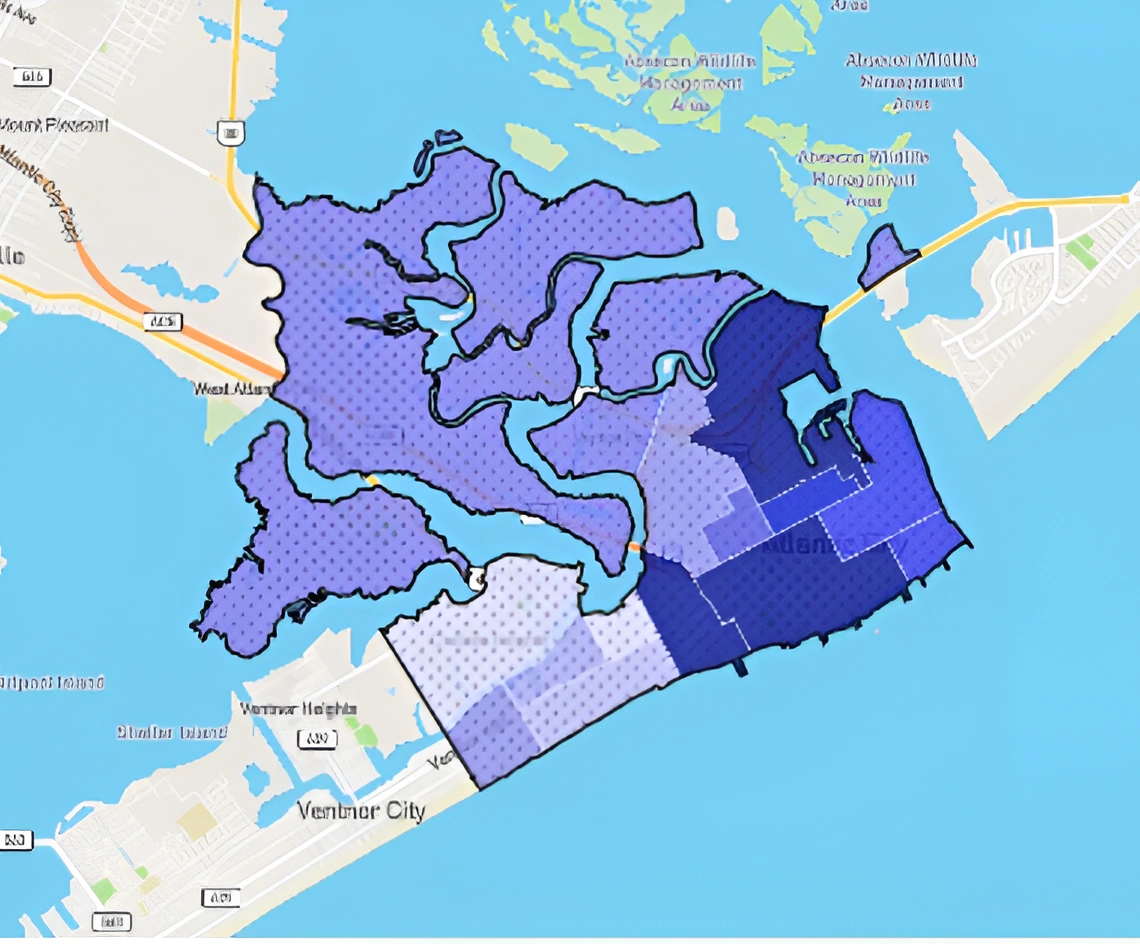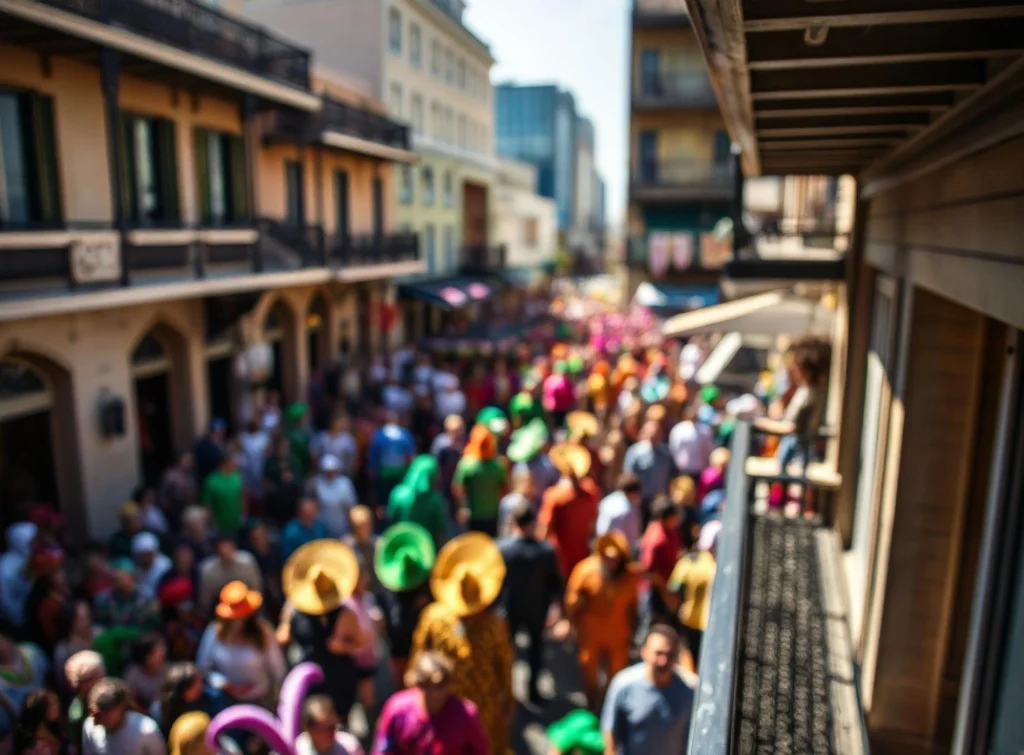Atlantic City’s reputation often sparks mixed feelings. Some see a lively boardwalk and bustling casinos, while others worry about crime, flooding, or safety after dark. That’s why so many people keep asking the same question: “Is Atlantic City safe in 2025?”
We’ve done the legwork for you. In this guide, we bring you the latest stats, research from credible sources, and practical steps you can take today to feel safer in Atlantic City, whether you’re visiting for a weekend, planning a more extended stay, or just curious about the city’s direction.
Crime Index Atlantic City 2025:

In 2025, Atlantic City started the year on a safer note. According to the Atlantic City Police Department, overall crime fell by more than 11% in the first quarter compared to the same period last year. Violent crimes showed the most significant improvement, dropping 22.3%, while property crimes declined by 4.3%.
Despite these gains, Atlantic City’s crime rate remains above the national average at 16.9 incidents per 1,000 residents. Still, the downward trend is a positive sign for public safety and community confidence.
Curious how Atlantic City compares to other major U.S. cities in terms of crime and safety? Our latest guide to the most dangerous cities in the U.S gives you the full picture.
Property crime stats in Atlantic City, 2025:

Atlantic City’s property crime rates are very high, led by theft, with nearly 52 incidents per 1,000 residents, significantly above national norms. Burglary (9.4 per 1,000) and motor vehicle theft (6.8 per 1,000) also exceed the averages, indicating that property-related offenses continue to be a significant concern for safety and quality of life.
Violent crime stats in Atlantic City, 2025:

Atlantic City’s violent crime picture shows that robbery and assault are the main drivers, with rates (5.5 and 11.9 per 1,000 residents) far above national averages. Rape is also notably higher, while murder remains comparatively low. This suggests the city’s biggest challenge is street-level violence tied to robbery and assaults, especially in nightlife and high-traffic areas.
Crime map of Atlantic City:

The crime map of Atlantic City shows that darker-shaded regions represent higher-risk areas, while lighter-shaded regions indicate safer neighborhoods. Overall, the northern and western parts of the city appear safer, with crime concentrated mainly in specific neighborhoods on the eastern side.
Safest neighborhoods of Atlantic City:
Based on data from the U.S. Census, FBI, BLS, CDC, Niche.com has its list of top 5 best places to live in Atlantic County:
- Linwood: Safe, family-oriented, small-town feel with good schools. Population ~6,954.
- Northfield: Peaceful neighborhoods with good transit access. Population ~8,427.
- Margate City: Beach lifestyle, diverse restaurants, and close to Atlantic City attractions.
- Egg Harbor Township: Large, diverse community with plenty of parks and activities, though schools and safety vary by area. Population ~47,723.
- Pomona: A quiet and safe residential area near Stockton University and Atlantic City International Airport.
Is Atlantic City safe for tourists?

Tens of millions of people poured into Atlantic City in 2025! Drawn by the casino resorts, beaches, and the world-famous Boardwalk, the city’s official website reports that 27 million visitors came to Atlantic City last year alone.
When asked by the tourists why Atlantic City has a negative reputation, social media is bombarded with real-life experiences.
Some first-time visitors worry about crime and even consider carrying personal protection, but locals and regulars are quick to dismiss such concerns.
The consensus? Stick to the boardwalk, casinos, and entertainment areas, and you’ll be fine. Many say the worst you’ll encounter is panhandling or aggressive street solicitors if you wander off into residential neighborhoods.
Others argue that Atlantic City feels no more dangerous than Philadelphia, New York, or any other major city; it simply has a smaller footprint, so the contrast between tourist zones and struggling neighborhoods is more pronounced. Regulars describe walking the boards for decades without incident, while visitors note the heavy police presence, cameras, and active casino security.
In short, Atlantic City’s “dangerous” reputation lingers. Still, most people with firsthand experience agree: use common sense, stay where the action is, and the city is as safe as any other big destination.
Is Atlantic City safe for residents?
When you scan the latest headlines about Atlantic City, it’s easy to see why safety remains such a concern. Recent reports highlight shootings outside homes and apartments, violent altercations during public events, and even misconduct among local officers.
Deadly crashes on the Atlantic City Expressway and high-profile cases have created a sense of unease.
At the same time, officials note that overall crime is down 11 percent in the first quarter of 2025, with no homicides recorded during that period.
However, when we ask the locals, who have been living in these neighborhoods for years, that is when we discover the ongoing debate: Is Atlantic City truly becoming safer, or does perception still outweigh progress?
Is Atlantic City a safe bet for business?

Theft, pickpocketing, and shoplifting are frequent issues, particularly in tourist-heavy areas. National reports also flagged a 14% rise in shoplifting in 2024, a trend Atlantic City hasn’t escaped.
Despite the headlines about crime and uncertainty, Atlantic City continues to prove itself as a critical economic engine for New Jersey. In fact, casinos and resort operators are investing over $1 billion into infrastructure upgrades, tourism growth, and new entertainment offerings.
Mayor Marty Small has also pointed to reduced debt, lower crime rates, and long-term redevelopment projects, such as Bader Field, as reasons to stay optimistic about the city’s future.
It’s not just about adding more and more surveillance cameras. Just as Fredericton is stepping up safety measures to deal with social issues downtown, Atlantic City businesses are recognizing the same truth: you can’t leave safety to chance. The difference between struggling with recurring theft or thriving in a high-traffic district often comes down to the security tools you choose to invest in.
That’s where Remote Video Monitoring steps in.
Remote Video Monitoring:

Unlike traditional cameras that only record incidents, remote monitoring uses AI-powered detection and live surveillance agents to identify suspicious activity in real-time and act before problems escalate.
Whether it’s preventing shoplifting in a retail store, deterring break-ins after hours, or adding an extra layer of protection in high-crime zones, this proactive approach is becoming a game-changer for businesses in Atlantic City.
Find out how residents in Atlanta, Washington D.C, Detroit, Dallas, and surrounding areas are using remote video monitoring to stay safer. Here are our latest blogs:
- Is Dallas safe? Crime rate and safest neighborhoods.
- Is Washington DC safe for tourists and residents? 2024 update.
- Is Detroit Safe? A Comprehensive Look at 2024 Crime Rates.
- Atlanta crime rate stats & safest neighborhoods: 2024 insights.
- Top Safest Cities in North Carolina: Where to Live in 2024.
Conclusion:
Atlantic City is safer than it was before, but crime still persists. The good news is that crime has trended downward in 2025, with double-digit drops in violent incidents and renewed investments in tourism and safety.
For visitors, the answer is yes: Atlantic City can be safe if you stick to the boardwalk, casinos, and main attractions while following basic travel precautions. For residents and businesses, progress is real but uneven, necessitating the development of proactive safety tools, ranging from community policing to remote video monitoring.Ultimately, Atlantic City is neither the unsafe outlier some imagine nor a risk-free resort town.
It’s a destination best enjoyed with awareness, smart choices, and the right safeguards in place. Contact us today for a customized security solution for your business.





